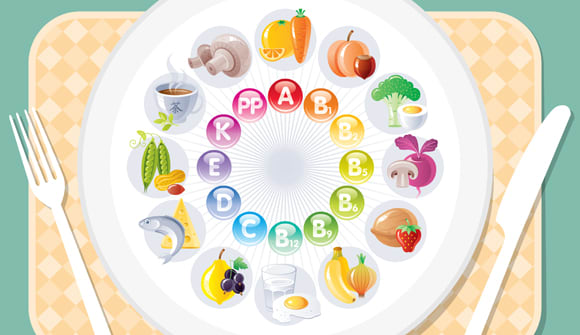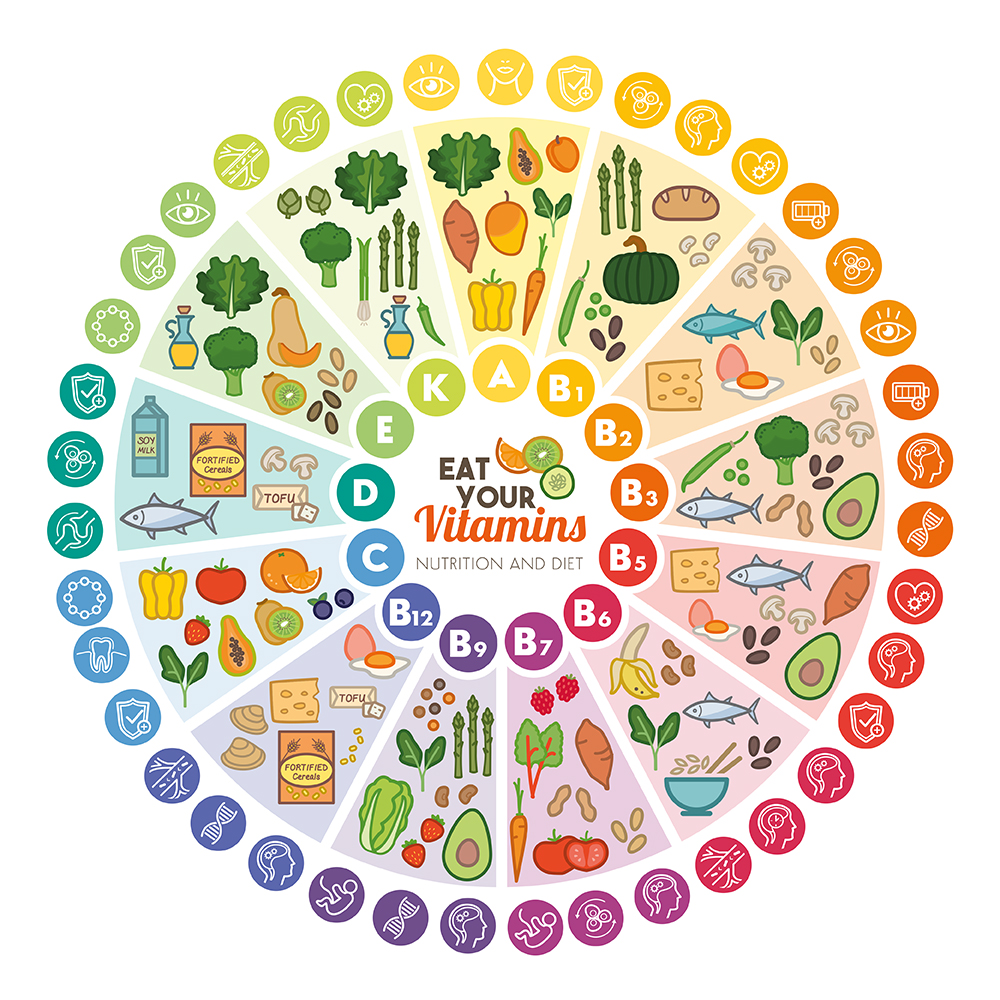The adult ABCs
Do you need a multivitamin?
Article Author: Juliette Allen
Article Date:

The vitamin aisle at the grocery store can be a daunting place. What’s the difference between vitamins B5 and B2? Am I getting enough of either?
While it can be tempting to pack your cart with vitamin supplements, or a multivitamin that contains them all, do you really need it?
More than half of all Americans take vitamin supplements, according to an article from the New York Times, and we spend nearly $30 billion a year on dietary supplements.
While the human body needs vitamins for normal functions, we can’t make them on our own, with the exception of vitamin D. Therefore, we have to eat them. Deficiency of certain vitamins can lead to conditions like scurvy and pellagra. Trust me – neither of those is pleasant.
Eat your vitamins
Diets high in antioxidant-rich fruits and vegetables, unprocessed foods, plant-based fats and proteins, legumes, whole grains and nuts help you get your vitamins naturally. Fruits and vegetables should be half of every meal, with nine servings a day in a variety of colors to maximize intake of various vitamins. Legumes include a variety of beans that contain iron, B vitamins and minerals. One-and-a-half to three cups of legumes a week are recommended.
But even healthy eaters may not get all the vitamins they need from diet alone. Supplements may, or may not, be the answer.
Vitamins A, D, E and K are fat-soluble, meaning they are absorbed along with fats in the diet and can be stored in the body’s fatty tissue. If too much of any of these vitamins is absorbed into the system, it can build up to toxic levels and can cause harm. Vitamin D increases calcium in the blood that can cause nausea, vomiting, urinary frequency and weakness. Vitamin A can cause vision changes, bone pain and skin changes. Excess vitamin E can cause muscle weakness, fatigue, nausea and diarrhea. Vitamin K toxicity is mostly associated with injectable supplements but oral vitamin K can interfere with blood thinners. Studies show increased risk of cardiovascular disease with vitamins A and E.
The other vitamins are water-soluble, and excess absorbed levels are released in the urine, avoiding a toxic buildup.

What’s the deal with deficiencies?
Vitamin D deficiency may contribute to the development of osteoporosis, falls and fractures in older adults. Because it is one of the fat-soluble vitamins, toxicity is a concern but is rare. The upper limit for vitamin D is 4000 units daily for healthy adults.
Multiple studies have shown vitamin A supplementation has no benefit in prevention of cataracts or macular degeneration, which is the deterioration of the small central area of the retina and the leading cause of vision loss among people 50 and older. Supplementation of vitamin A is not recommended as risk for harm is greater than potential for benefit.
High doses of vitamin C, 1000 mg daily, have shown some benefit in preventing the common cold if taken with exposure. Taking daily high-dose vitamin C does not show the same benefit and can increase the risk of kidney stones.
Vitamin E doses greater than 400 units daily might increase risk of death from all causes. A select trial followed more than 35,500 men for around seven years. Compared with those taking a placebo, those taking vitamin E supplements had an increased risk of prostate cancer. Additionally, vitamin E supplementation may increase the risk of heart failure. In a study of non-institutionalized older adults who had been experiencing a respiratory infection, those who received vitamin E had significantly longer total illness duration, more symptoms, and a higher frequency of fever and activity restriction. A meta-analysis of randomized trials of vitamin E supplementation examined the effects of supplementation on all-cause mortality, which was found to be increased in patients receiving high-dose vitamin E supplementation.
B vitamins are available in many foods and deficiencies are rare, except for B12. Vitamin B12 is found only in animal products. Genetic factors, interference from medications, and age may contribute to vitamin B12 deficiency.
Do I need a multivitamin?
Multivitamin supplementation should be considered for those at risk of vitamin deficiency. That includes people with alcoholism, poor-quality and vegan diets, those who have had gastric bypass surgery or gastric sleeve surgery, and those taking medications that reduce vitamin absorption.
Taking a multivitamin may be more beneficial than taking supplements of individual components, and the level of fat-soluble vitamins in multivitamins is safe. Multivitamins should not be taken to prevent cancer or heart disease in those with a healthy diet. In the case of vitamins, more is not better. Rather, it can be toxic and expensive.
Unfortunately, over-the-counter vitamins are not regulated and sometimes what is in the bottle is not what the label says. Multivitamins with the United States Pharmacopeial Convention (USP) seal have had their manufacturing plants inspected and bottles tested, and therefore are your safest option.
The bottom line
Eating vitamins and minerals in food is always the preferred way. However, if you are unable to get what you need through your diet, a multivitamin should not cause harm. Please let your primary care provider know which over-the-counter supplements you are taking and consult them about your individual needs.
Be healthy and blessed!
Our guest columnist is Kelly Rich, MD, a board-certified family medicine physician with Baptist Primary Care. To find the right primary care physician for you, call 904.202.4YOU.
Source: New York Times



